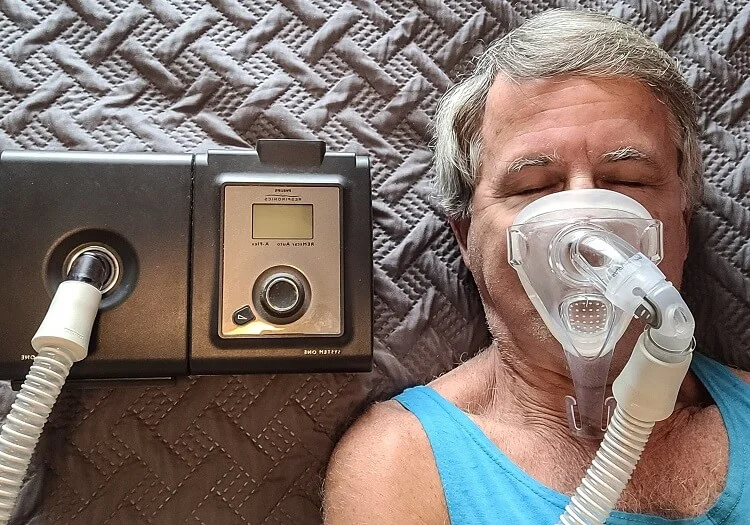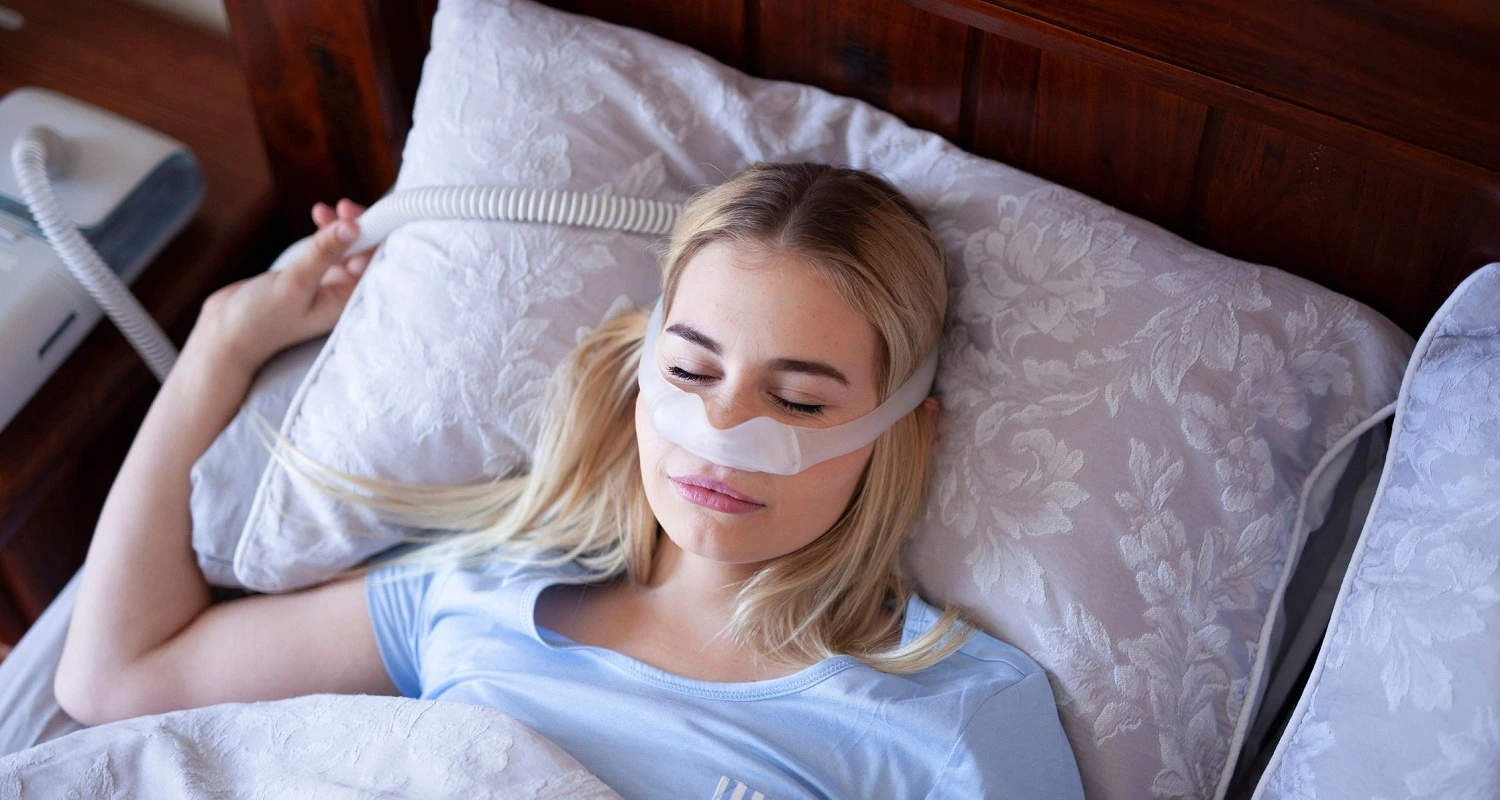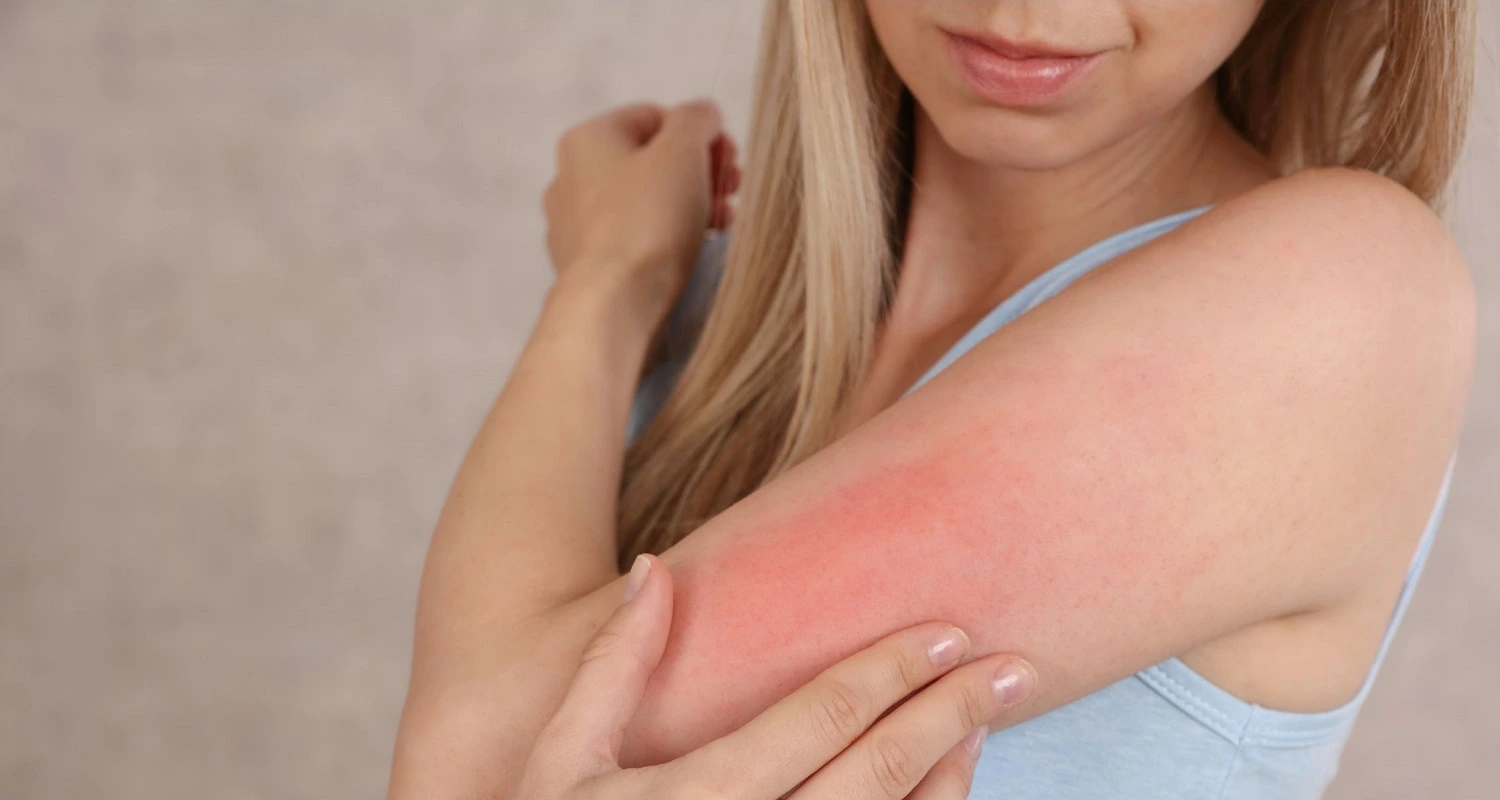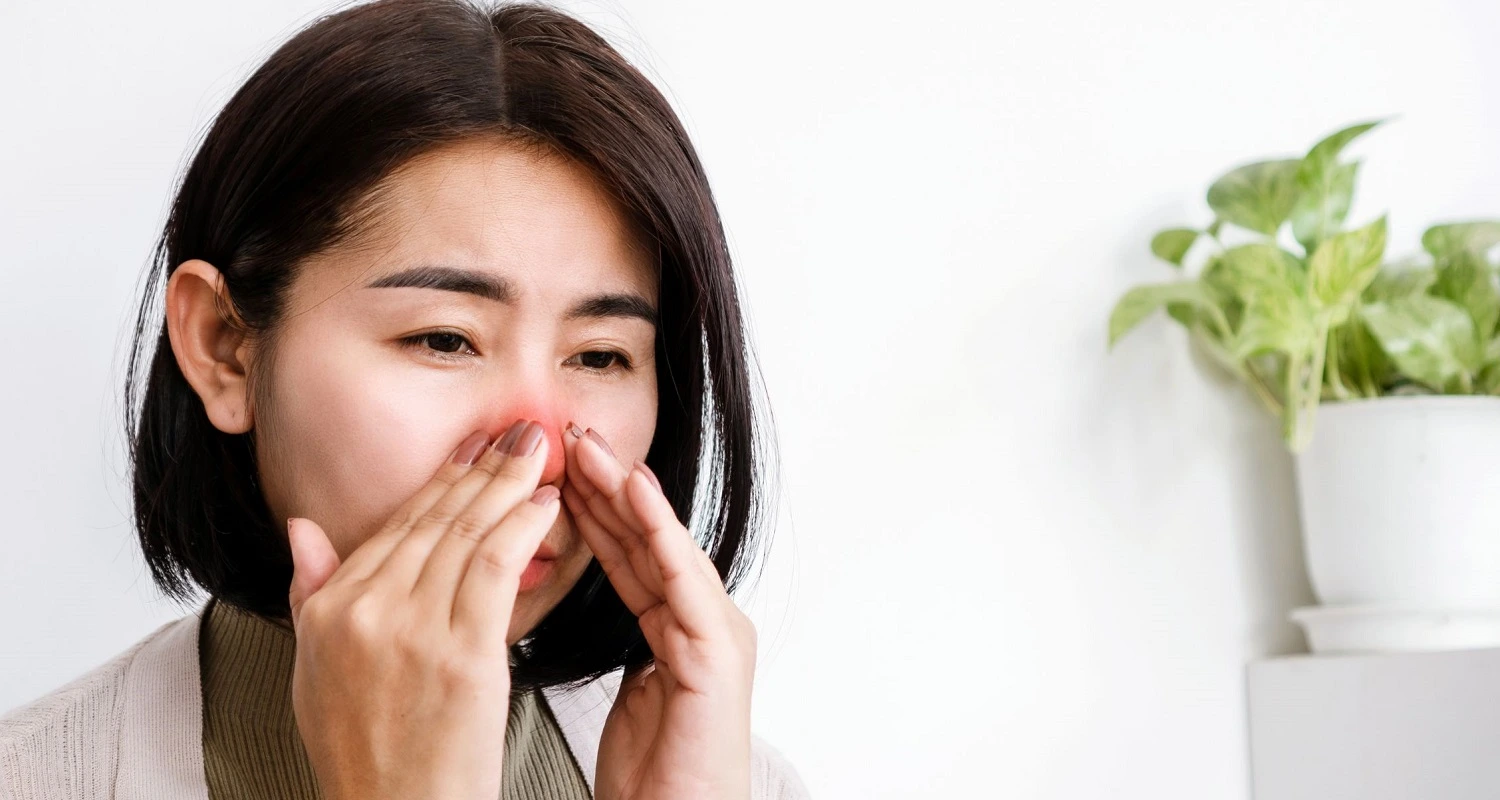Last Updated on: 10th December 2025, 05:50 am
In this article, we will tell you what you need to know about the long-term side effects of CPAP machines. One of the most effective treatment options for obstructive sleep apnea syndrome (OSAS) is the use of a device that provides continuous positive airway pressure (CPAP). The side effects of CPAP are a significant concern for some patients who use this device.
What is CPAP?
CPAP is a machine that generates a constant flow of air through a mask that is placed over the patient’s nose and/or mouth while they sleep. This positive pressure in the airways helps keep them open, preventing obstruction and sleep apnea.
The flow of air from the CPAP is adjusted according to the pressure recommended by the doctor based on the severity of OSAS. By allowing normal breathing during the night, the use of CPAP improves sleep quality and reduces symptoms of OSAS, such as daytime sleepiness, snoring, and fatigue.
What Types of Masks are there?
There are several styles of masks, and their choice depends on various aspects. Below are some factors that may influence the choice of the most appropriate mask for the patient:
• Type of sleep apnea disorder.
• Breathing habits.
• Patient preferences.
• Type of CPAP machine.
Among the different types of CPAP masks are:
1. Nasal pillow mask
• May have a small pad that covers the nostrils or tips that fit inside them.
• Allows for the use of glasses.
• Beneficial for patients with abundant facial hair that could prevent proper adaptation of a larger mask.
2. Nasal mask
• Covers the entire area of the nose.
• Suitable for people who tend to move around a lot while sleeping.
3. Full-face mask
• Covers the entire mouth and nose.
• Triangular in shape.
• Appropriate for patients who breathe through their mouth while sleeping or who have some type of nasal obstruction.
Long-term Side Effects of CPAP Machine
In general, CPAP is safe and well-tolerated. However, like any medical treatment, it can have side effects in some patients. Some of the most common ones are:
1. Skin irritation and pressure ulcers
When the mask is adjusted over the patient’s face, it can cause skin irritation, redness, and in more severe cases, pressure ulcers. This can happen due to constant friction of the mask against the skin and worsens in patients who sleep in positions that involve the mask support on a specific area for long periods of time. Similarly, patients with very sensitive skin or latex allergy may experience a rash.
How to alleviate it?
● Clean the mask and skin before using it.
● Ensure that it is properly fitted.
● Use creams or skin protectors if necessary.
● If the mask does not fit properly, it is recommended to schedule an appointment with the medical provider to evaluate the possibility of changing it for a better fit.
2. Dry mouth and throat
When there are air leaks in the mask, it can cause dryness in the mouth and throat in some patients. This, in addition to being an uncomfortable condition, can increase the risk of respiratory infections, nosebleeds, as well as the deterioration of teeth and mouth tissues.
It is important to remember that saliva is an essential factor in protecting and caring for oral mucosa, cleaning teeth, and regulating oral pH, among many other functions. Therefore, when dryness occurs in the mouth, patients are likely to be more prone to develop cavities.
A dry mouth is one of the symptoms of burning mouth syndrome. If you want to learn more about burning mouth syndrome, click here.
How to alleviate it?
To reduce discomfort and the effects of dryness in the mucous membranes, it is recommended to
● Use over-the-counter nasal saline sprays.
● Use a chin strap to prevent the mouth from opening and causing leaks.
● Use a CPAP-integrated humidifier or an external humidifier to add moisture to the air supplied through the mask.
● Practice good oral hygiene before sleeping and upon waking up, to decrease the risk of cavities and gum diseases due to dryness during the night.
3. Nasal congestion and irritation
The airflow can cause CPAP users to experience nasal congestion and irritation, especially in patients who already have pre-existing nasal problems, such as allergic rhinitis or sinusitis.
How to alleviate it?
● Use a humidifier with distilled water.
● Use nasal saline solutions.
● Consult with the treating physician about other treatments for nasal congestion.
4. Swelling and Stomach Discomfort
CPAP provides a constant stream of air that can cause swelling and stomach discomfort in some patients, due to a known effect called “aerophagia,” which refers to the swallowing of air during therapy. As such, some CPAP users may experience feelings of fullness or abdominal distension.
How to alleviate it?
● Avoid foods that cause flatulence at night.
● Adjust the air pressure according to medical recommendations.
● Sleep with two pillows to elevate the head position.
● If symptoms persist, it is advisable to consult a doctor, as medication may be required.
5. Eye Irritation and Dryness
Some patients may experience dryness and eye irritation due to air leakage that can come into contact with the eyes.
How to alleviate it?
● Use over-the-counter lubricating eye drops before bed.
● Ensure that the mask fits properly to reduce the flow of air near the eyes.
6. Psychological Effects
This is one of the most harmful long-term side effects of CPAP machines. Although not common, CPAP users may sometimes develop psychological effects from the use of CPAP, caused by the discomfort that the mask placement, equipment noise, or changes in sleep routine could produce.
It is possible that these patients may present episodes of anxiety, claustrophobia, or emotional difficulties, which can significantly affect adherence to treatment.
How to deal with this?
Express concerns and discomfort to the healthcare provider to look for options for more comfortable and quieter masks and equipment, as well as to evaluate the possibility of requiring psychological therapy to help manage anxiety and emotions related to treatment.
7. Effects on Blood Pressure
The OSAS is a risk factor for cardiovascular diseases, such as hypertension, myocardial infarction, and stroke. The use of CPAP has been shown to be effective in reducing cardiovascular risk by improving sleep quality and reducing daytime sleepiness. However, some studies have found that CPAP can have side effects on blood pressure, especially in patients with arterial hypertension. In some cases, CPAP can increase blood pressure, although this is not common.
Conclusion
CPAP is an effective therapy for the treatment of OSA and other related respiratory disorders; however, it can have side effects in some patients. Many of these have a solution, but it is essential to consult with your medical provider before making changes to the CPAP device, mask, or protocol of use, to ensure the success of treatment and an improvement in the quality of life.
Share:
References
1. CPAP machines: Tips for avoiding 10 common problems. (Oct 27, 2021). Mayo Clinic. https://www.mayoclinic.org/diseases-conditions/sleep-apnea/in-depth/cpap/art-20044164
2. Ikpeze, T. (Dic 2, 2022). Treatments for sleep apnea. Sleepapnea.org. https://www.sleepapnea.org/treatment/
3. Peters, B. (May 30, 2013). Common side effects of CPAP therapy. Verywell Health. https://www.verywellhealth.com/cpap-therapy-what-are-the-side-effects-3015024
4. Rebecca Joy Stanborough, M. F. A. (Ago 18, 2020). What is a CPAP machine? How it works, pros, cons, other options. Healthline. https://www.healthline.com/health/what-is-a-cpap-machine
5. Ikpeze, T. (Jan 24, 2023). Aerophagia. Sleepapnea.org. https://www.sleepapnea.org/cpap/aerophagia/
6. Pleava, R., Mihaicuta, S., Serban, C. L., Ardelean, C., Marincu, I., Gaita, D., & Frent, S. (2020). Long-Term Effects of Continuous Positive Airway Pressure (CPAP) Therapy on Obesity and Cardiovascular Comorbidities in Patients with Obstructive Sleep Apnea and Resistant Hypertension-An Observational Study. Journal of clinical medicine, 9(9), 2802. https://doi.org/10.3390/jcm9092802
-
Nayibe Cubillos M. [Author]
Pharmaceutical Chemestry |Pharmaceutical Process Management | Pharmaceutical Care | Pharmaceutical Services Audit | Pharmaceutical Services Process Consulting | Content Project Manager | SEO Knowledge | Content Writer | Leadership | Scrum Master
View all posts
A healthcare writer with a solid background in pharmaceutical chemistry and a thorough understanding of Colombian regulatory processes and comprehensive sector management, she has significant experience coordinating and leading multidisciplina...




















